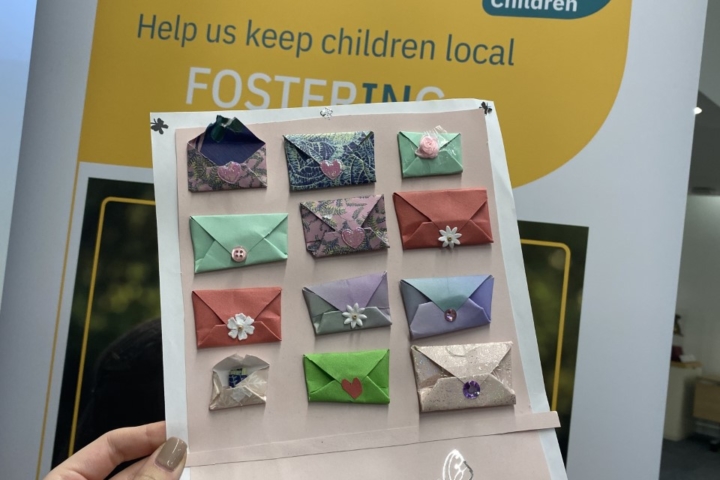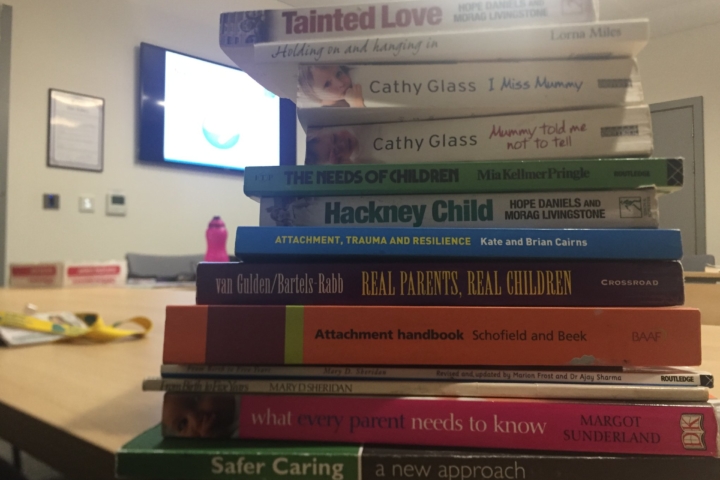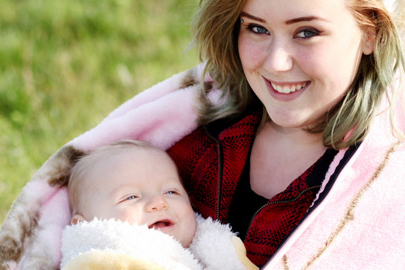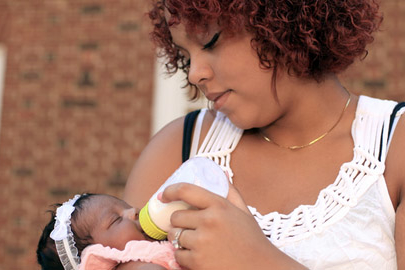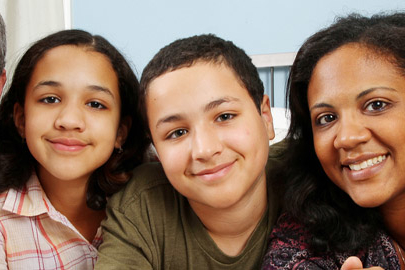This page will help answer some of your fostering questions. If you can’t find the answer to something you want to know, call our friendly recruitment team on 0300 131 2797.
Fostering general questions
Fostering offers children a safe and caring family, usually geographically close to their birth family’s home, while they are unable to live with their own. It provides an opportunity for other professionals to work with the birth family to help resolve their issues.
Recent available statistics show:
- 83,840 children were living in care on 31 March 2023
- There were 59,380 registered foster families in England at end of March 2023
- Every year thousands of new foster families are needed in England.
Like other local authorities across England, we have many children in care in the Reading area but because there’s a shortage of people coming forward to be foster carers here, some of our children and young people have to live far outside of Reading, away from relatives, their school, friends and other networks.
You can read up on the latest figures here: Children looked after in England – statistics (.gov)
Imagine if you were moved away from everything and everyone you know and love.
Children come into care for many different reasons. Sometimes it is because of a parent’s short-term illness or a temporary problem within the family that requires the children to have alternative care. Some have experienced domestic violence or witnessed drug and alcohol misuse. Others have been abused or neglected.
Becoming a foster carer
You need to be over 21 but we have no upper age limit.
No you don’t. As long as you have a spare room and space for a child you can own or rent your own home. If you do rent, then you will need to have written permission from your landlord before you start the assessment process.
We ask that our foster carers are able to provide a child their own room because it is often inappropriate for them to share a bedroom with the children of foster carers, or with other foster children, due to unknown risks linked to the trauma children who come into care may have experienced.
Also, a child coming into your care may never have had their own space. We believe it is especially important that foster children have their own room for their comfort and security, particularly at a time when they are going through an often unsettling change in their circumstances.
Yes, of course you can.
Yes, absolutely!
Yes, in fact they can be considered an asset to fostering. Your pets will be assessed throughout your application process to look at things like their behaviour and temperament.
So we can keep children in the same schools and around their friends and other local networks, our main aim is to find foster carers who live within 20km of Reading.
But, if you live more than 20 lines away, we can help you find you another not-for-profit fostering service because we’re part of the Local Authority Fostering South East hub, with 19 other local authorities in the South East. Pop over to our joint website to find out more.
- A foster child is not just a playmate.
- Life will be different at home and they will have to share your time, toys and space.
- The foster child will need care and support from everyone in the family but you will still make ‘special’ time for them.
Children in care can need extra attention so it is vital you consider this in relation to the needs of your own children. How your children react to another child living in your home can make or break a placement. We have a support network called the ‘Foster Squad’ for siblings of foster children which meets regularly for fun and activities.
You can. We will look to see what kind of experience you have of working with children and caring. We would encourage you to consider what impact a child will have on your life. If you think you need more experience with working with children, then volunteering with local child care services is a great way to gain this.
Yes, it is possible. Please speak to us and explain your disability. As part of your application you will need to have a medical assessment to ensure you are able to carry out duties as a foster carer.
No diagnosis can prevent you from fostering. You will be asked to have a medical report as part of your assessment process and we need all prospective foster carers to consider the emotional impact of fostering on their health too.
We believe that fostering is a job in itself. Having too many job commitments elsewhere would impinge on the flexibility and the ability to react to a crisis situation.
We ask that in a two parent household one person is fully focused on the fostering, having no work commitments elsewhere. For a single applicant it would be essential that if they work, they have very flexible work arrangements, and would only be working part time.
It is not required but we would need you to be a full-time resident of the UK.
A criminal conviction doesn’t automatically rule you out of fostering, but you must declare all the details to us. An enhanced Disclosure and Barring Service (DBS) check will be carried out on you and anyone else in the household aged 17 or over. Each application will be considered individually, but we’ll not progress your application where there are convictions for offences against children or other serious offences.
We believe children should be placed with foster families who are able to meet their needs, including religious needs. However you would also need to consider how you would feel if a child was placed with you that did not share your religion, and how you would feel about discussing issues such as alternative religious beliefs or sexuality, whilst still making sure you can abide by the fostering agencies’ own policies. It is important that foster carers are tolerant and open to other religious beliefs, and that they are non-judgmental in this respect.
Yes, you can. We have children for whom English isn’t their first language and it can be helpful for them to live in a home where their first language is spoken. You will need good level of spoken and written English for communicating with other professionals.
Foster carers are approved to look after children and young people across a wide age range from birth to 18. You can put a preference for certain age ranges depending on your circumstances.
Yes. You can speak to our fostering team and other foster carers about this. If you do decide that it will be too difficult, then you might like to consider adoption.
If you, or the child, are unhappy with the arrangements then it is within everyone’s interests for Brighter Futures for Children IFA to make alternative arrangements. We will explain how this works in your assessment process.
Fostering with Brighter Futures for Children IFA
Once the application is accepted you will be invited to attend a ‘Skills to Foster’ prep group. We provide core training such as; Child Protection and Safeguarding, First Aid, Child Development, Attachment, Resilience and Effective Communication which are required at the start of your journey. There will also be ongoing training available once you are approved as a foster carer.
Once you have been approved as a foster carer, you will be assigned a supervising social worker who will be your key contact and you will have monthly contact with them. You will have a mentor for the first year, as well as foster carer support groups. You will also have opportunities to meet other foster carers and share experiences with them through meetings and social events. We will also send you a welcome pack and regular newsletters.
Yes. You will receive a foster carer fee. You can be a Level 1, 2 or 3 foster carer and there is a different allowance based on this. You will get between £106 and £425 per week.
Depending on the age of the foster child, you will get an allowance from £153 to £265.
Once you enquire, we will get in touch and have a chat where we will ask you some questions and you can find out more about becoming a foster carer. We will then come out to you for an ‘initial visit’ where we will discuss the role in more depth and see if your home is suitable. From here, the two stage assessment process begins. Stage 1 involves referees and legal, health and criminal checks. Stage 2 involves the assessment report where we will visit you at home for a minimum of 8 sessions. During these, we will be looking at the qualities and experience you already have and help you develop any additional skills and knowledge to provide good quality care to a child who is fostered. Once these stages have been completed, we will present your report to the Foster Panel who will make a recommendation to approve you as a foster carer.
Our target is 6 months but this depends on the checks we have to do.
Short-term, long-term / permanent, emergency, respite, mother and child, family and friends, short breaks, supported lodgings. You can find out more on this section of our website.
We are non-profit and deliver a fostering service on behalf of Reading Borough Council. We work closely with all the children’s services provided in the Reading area plus other public sector organisations. This means we can offer a more holistic provision of care for the child you may be looking after.
We’re also part of the new Local Authority Fostering South East hub, so we share resources, information and offer tonnes of support, guidance and help to feel part of our fostering family.
Write to:
Steffi Roth (BFfC IFA Registered Manager)
Brighter Futures for Children IFA
Civic Offices
Bridge Street
Reading
RG1 2LU
Call: 0118 937 3740
E-mail: steffi.roth@brighterfuturesforchildren.org
Please read our complaints procedure.






